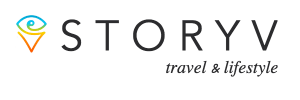A pharmaceutical career offers a blend of science, healthcare, and innovation. This article explores new positions in the industry with salaries starting at $60,000, aimed at those ready to embark on this rewarding path.
We’ll cover available roles, salary expectations, and application strategies. We aim to equip you with the knowledge to pursue these opportunities confidently.
Pharmaceutical Industry Overview
The pharmaceutical industry is rapidly expanding, fueled by innovation and an aging population. This surge necessitates a fresh wave of professionals. Opportunities abound, from drug development to regulatory compliance, for those seeking a dynamic career path.
The sector offers lucrative financial rewards and a chance to impact global health positively. The industry promises a blend of challenge and reward for those considering a pharmaceutical career.
Roles in the Pharmaceutical Industry
The pharmaceutical sector offers a variety of entry-level positions. Each role plays a critical part in the industry’s success.
Clinical Research Coordinator
This role involves managing clinical trials and ensuring they adhere to regulatory standards. Candidates need strong organizational skills and usually a degree in a scientific field. The starting salary is typically around $63,000.
Pharmaceutical Sales Representative
This position focuses on promoting medications to healthcare professionals. Essential skills include excellent communication and a background in science or business. Starting salaries are usually near $60,000.
Quality Control Analyst
In this role, you’ll ensure products meet quality and regulatory standards. It requires a keen eye for detail and a science degree. The starting salary is generally about $62,000.
Regulatory Affairs Associate
This job involves managing drug approval processes. It’s ideal for those with meticulous attention to detail and a life sciences background. The average starting salary is around $65,000.
Lab Technician
As a lab technician, you’ll conduct experiments and tests. A degree in biology or chemistry and technical understanding are essential. Entry-level positions start at about $60,000.
Pharmacy Technician
This role supports pharmacists in dispensing medication. It requires a certification and strong people skills. Starting salaries are around $70,000, with potential for quick growth.
Drug Safety Associate
This position involves monitoring the safety of pharmaceuticals. Analytical thinking and a pharmacy-related degree are essential. The starting salary is typically $62,000.
Biostatistician
In this role, you analyze data from medical research. Strong statistical skills and a relevant degree are necessary. Entry-level salaries can start at $70,000.
Benefits Overview
Employees in the pharmaceutical industry often receive comprehensive health insurance, safeguarding their well-being. Retirement plans are standard, providing long-term financial security.
Performance bonuses reward hard work and innovation. Many companies also offer educational assistance, encouraging ongoing professional development.
Wellness programs and flexible working arrangements are increasingly common, reflecting the industry’s commitment to a healthy work-life balance. These benefits underscore the industry’s investment in its workforce.
Educational Requirements
A bachelor’s degree is often the minimum requirement for many roles in this field. Degrees in life sciences, pharmacy, or chemistry are particularly relevant.
For more specialized positions, such as biostatistics or drug safety, a master’s or doctoral degree might be necessary. Certain roles also demand specific certifications, which can be obtained through accredited programs.
Ongoing education is crucial, as the pharmaceutical industry is constantly evolving. Keeping up-to-date with the latest advancements and regulations is essential for career progression.
Skills Needed
Analytical thinking is fundamental, particularly for roles involving research and quality control. Effective communication is crucial, not just for sales positions but for teamwork and collaboration across all roles.
Technical skills tailored to specific job requirements are non-negotiable. Additionally, problem-solving skills are highly valued, enabling professionals to navigate industry challenges.
Adaptability is key, allowing for quick responses to the ever-changing pharmaceutical landscape. Continuous learning and skill development are also necessary, ensuring professionals stay relevant and practical.
Application Guide
Embarking on a pharmaceutical career starts with a strategic application process. This guide breaks down the essential steps.
Research and Identify Positions
Begin by researching the pharmaceutical industry to understand various roles and their requirements. Use job boards like LinkedIn, company websites, and professional networks to find suitable openings.
Assess how your skills and qualifications match the job descriptions. Prioritize positions that align with your career goals and interests for a focused approach.
Tailor Your Resume and Cover Letter
Your resume should highlight relevant education, skills, and experience. Customize it for each application to reflect the specific job requirements.
A well-crafted cover letter can set you apart, showing your enthusiasm and suitability for the role. Use it to demonstrate your knowledge of the company and how you can contribute to its success.
Prepare for Interviews
Prepare for interviews by researching the company and the pharmaceutical sector. Understand key industry trends and how they relate to the role.
Practice answering common interview questions, focusing on how your skills and experiences align with the job. Also, develop questions to ask the interviewer, showing interest and engagement.
Follow Up After Applications and Interviews
Send a thank-you email within 24 hours of your interview to express your continued interest. If you have yet to hear back within a week or two, follow up with a polite inquiry about the status of your application.
Use this opportunity to reiterate your enthusiasm for the role. Be persistent but respectful in your follow-up communications.
Industry Trends
Technological advancements in digital health and AI are reshaping the pharmaceutical industry. Personalized medicine and targeted therapies are becoming increasingly prevalent, demanding new skills and knowledge.
Regulatory changes and a focus on sustainability are influencing industry practices. There’s a growing emphasis on patient-centric approaches in drug development and marketing.
Collaboration between pharmaceutical companies and biotech firms is on the rise. These trends are creating new opportunities and challenges in the sector.
Future Outlook
Continued investment in research and development is expected to drive innovation. Emerging fields like gene therapy and nanomedicine will likely grow, offering new career paths.
The global nature of healthcare will demand more focus on international regulations and markets. Digital transformation in healthcare will continue, increasing the need for tech-savvy professionals.
The COVID-19 pandemic has highlighted the importance of rapid vaccine development, which may remain a priority. Overall, the future looks bright for those ready to adapt and grow with the industry.
The Bottom Line: Your Pathway to a High-Earning Pharma Career
The pharmaceutical industry offers diverse new positions with salaries starting at $60,000, presenting lucrative opportunities for aspiring professionals. Equipped with the proper education and skills, you can embark on a financially rewarding career that contributes to healthcare advancements.
This field demands continuous learning and adaptability, ensuring a dynamic and fulfilling career path. As the industry grows, so do the possibilities for those ready to dive into this vibrant sector.

































